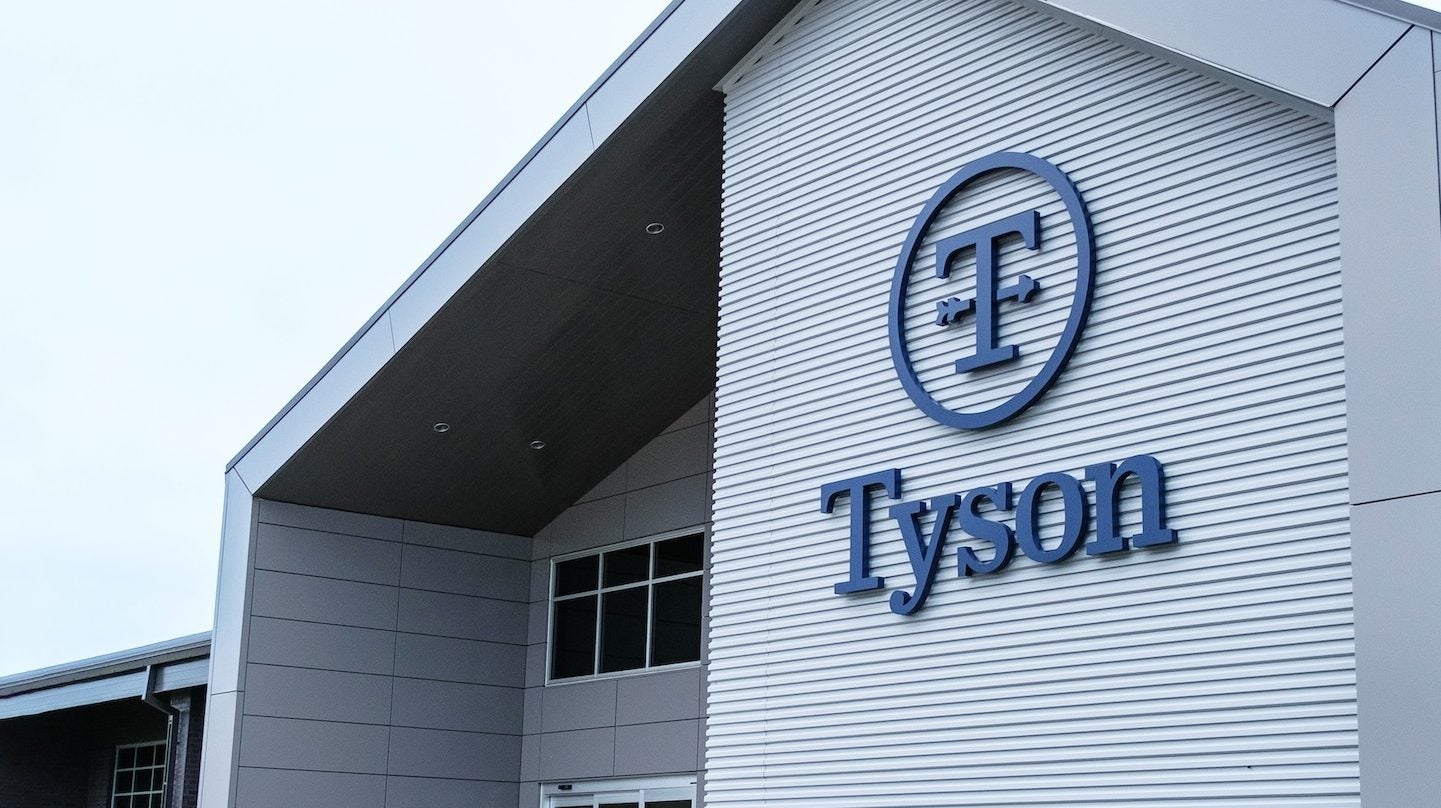

Alongside our daily news coverage, features and interviews, the Just Food team sifts through data sets to bring you a round-up of the week in numbers.
Meat played out as a key theme this week, along with animal-free alternatives in the less developed markets of Spain and Denmark.
Tyson Foods was reported to be pairing back what it offers in antibiotic-free beef, although the US-based meat giant deflected the claims somewhat.
In the same protein category, Spain’s Grupo Miguel Vergara struck a deal on its own turf to buy the beef assets of Valles del Esla.
Consolidation also continued in meat-free as Canada’s Above Food reached into Spain to snap up plant-based business Brotalia, which also produces seafood alternatives.
And Matr Foods, a start-up in Denmark making fungi-based fermented burgers and mince, outlined its plans after winning local funding.
Access the most comprehensive Company Profiles
on the market, powered by GlobalData. Save hours of research. Gain competitive edge.

Company Profile – free
sample
Your download email will arrive shortly
We are confident about the
unique
quality of our Company Profiles. However, we want you to make the most
beneficial
decision for your business, so we offer a free sample that you can download by
submitting the below form
By GlobalData
Tyson dials back on antibiotic-free beef
In reaction to a Bloomberg report Tyson Foods plans to reduce its offerings of antibiotic-free beef, the company downplayed such speculation.
“We continue to offer antibiotic-free beef based on market demand, and our commitment to antibiotic stewardship has not changed,” the US meat major responded in a statement, without addressing specific questions fielded by Just Food.
A year ago, it emerged that Tyson Foods was reintroducing some antibiotics into its chicken supply chain and removing the “no antibiotics ever” label it had used on its namesake chicken products.
At the time, a spokesperson for the company said Tyson Foods bases its “decisions on sound science” and its selection of the antibiotics it would use follow a standard recognised by the US Department of Agriculture – “no antibiotics important to human medicine”.
It was a similar reaction to the latest report for beef as a media report suggested the company told a customer late in 2023 that it would not be able to continue to supply beef without antibiotics.
Tyson Foods has also ended a programme with the Certified Angus Beef company in Ohio to market antibiotic-free beef, the same report claimed.
As a counter, the company said it “is dedicated to maintaining the health and welfare of the animals within our supply chain”, adding: “We base our decisions on sound science and an evolving understanding of the best practices impacting our customers, consumers and the animals in our care.”
Steve Roach, a food safety director at Keep Antibiotics Working, said: “Tyson Foods pulling back on stopping antibiotic overuse is disappointing and short-sighted.
“Antibiotic resistance continues to be a major public health threat as indicated by the UN High Level meeting on antimicrobial resistance planned for this fall.
“It appears that Tyson Foods is using its large market share to push buyers (e.g. Chick-fil-a, Certified Angus Beef) to weaken their standards instead of responding to consumer demand for safer beef.”
Spain beef consolidation
Family-owned Grupo Miguel Vergara said the deal for Valles del Esla enhances the company’s “leadership” in the Spanish beef sector, providing 1,600 pasture-raised cattle.
Its owner and president Miguel Vergara said the transaction “not only reinforces our capacity and leadership in the high-quality beef segment but also strengthens our responsibility for sustainable production, quality, environmental sensitivity, biodiversity and sustainable rural development”.
Valles del Esla was acquired from the El Enebro group, the holding company of the Álvarez family, for an undisclosed sum.
Grupo Miguel Vergara is a farm-to-fork business supplying the brands Vergara Blonde, Vergara Angus and Vergara Beef. It claims to have the largest livestock herd in Spain.
El Enebro sold the Valles del Esla beef business to focus resources on its winery and real estate businesses.
Marta Guirao, the general manager of El Enebro, told a Spanish publication that Valles del Esla “has managed to establish itself in the market as a brand of excellence thanks to its commitment to high quality and the strong commitment of its customers and suppliers”.
She added the group “has made a great effort to maintain the family’s commitment to the mountains of León until the last moment, seeking alternatives that would allow continuity to the different divisions of the meat project”.
Above Food meat-free expansion
Spain’s Brotalia was added to the Canadian company’s plant-based portfolio, building on previous deals for Natural Atlantic Foods, Only Oats, Culcherd and Northern Quinoa Production.
Better known as Foody’s, Brotalia was set up in 2017 and manufactures plant-alternatives to chicken, seafood, burgers and meatballs.
Above Food, which operates as a plant-based food-ingredients business but also offers finished meat, dairy and baby-food alternatives through its Above Food Brands subsidiary, described Brotalia as “leading advanced research in dry fermentation technologies”.
Spain is, however, a relatively small market for protein alternatives compared to the likes of the UK and the US, although the category is growing in value. Volumes are also heading north, while real beef equivalents are expected to keep declining.
Commenting on the latest acquisition, Lionel Kambeitz, the founder, president, CEO and executive chairman of Above Food, said: “Brotalia’s pioneering efforts in leveraging disruptive technologies to enhance the production of differentiated foods perfectly align with our quest to create a more sustainable and efficient food ecosystem globally.
“Moreover, this acquisition bolsters our food technology capabilities, acting as an incubator for shepherding new food-tech solutions that support our broader business.”
Current brands include Eat Up plant-based meatballs and mince, Culcherd dairy-free cheeses and butter, Only Oats drinks and Natural Atlantic Foods’ Tuno.
Matr Foods’ ambitions
The start-up aims to scale volumes with a new facility within two years when the meat-alternatives company will eye expansion beyond Denmark.
CEO Randi Wahlsten, a former Arla Foods’ executive who set up the business with three others in 2021, said Matr Foods operates out of a pilot factory in Denmark, producing around 30-40 tonnes of product a year.
Employing a fungi-based fermentation process, Matr Foods’ range includes burgers and mince, mainly supplied into the out-of-home channel in Denmark, but also through online retailer Nemling. Volumes have risen by about 50-60% since the first products were turned out last year, Wahlsten told Just Food.
On the back of securing financing from Novo Holdings, Wahlsten said: “The funding is the beginning of a journey to significantly scale-up the production capacity and take it to a more industrial, automated level.
“We are looking to give ourselves the ability to take a very significant step-change that is about 100 times up the volume that we’re producing right now.”
Wahlsten described Denmark as not the “most progressive” in meat alternatives compared to other European countries, noting per-capita spending in general is “significantly lower” than the likes of the UK, Germany and the Netherlands.
Wahlsten added Matr Foods is aiming to realise “big volumes” in 2026 with a new facility.
“We are very much looking at other European markets as well because we’re not building a factory to serve Denmark. The market is way too small for that,” she said.

